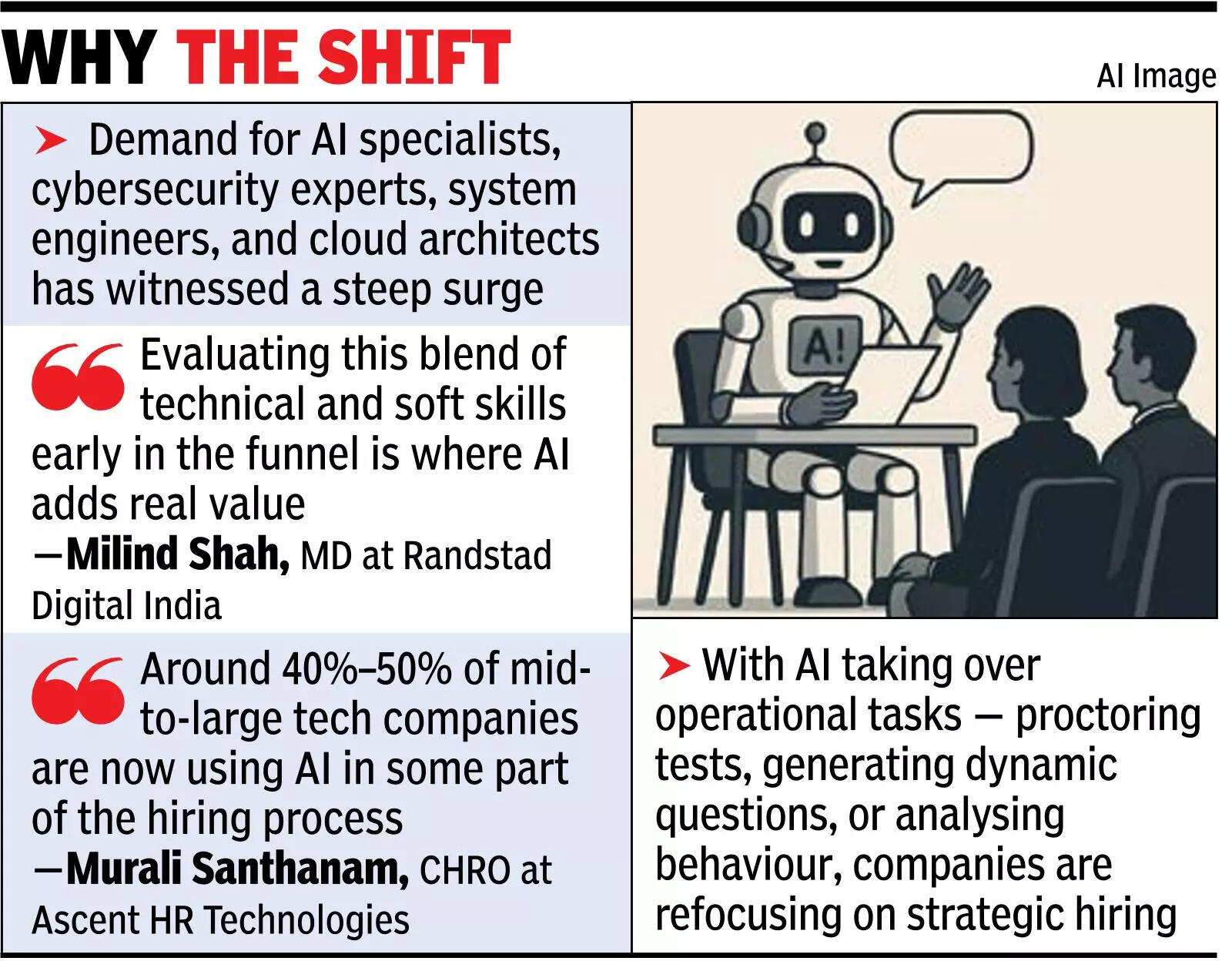
BENGALURU: Your first job interview may no longer be with a human. As AI becomes more embedded in recruitment, companies like Fractal Analytics, UST, and Happiest Minds are increasingly deploying bots to conduct technical assessments, evaluate communication, and even assess cultural fit-without a recruiter being around.The surge in application volumes and a widening tech talent gap are driving this shift. Nearly 50% of mid-to-large tech companies are now using AI in some part of the hiring process – mainly in screening and assessments – though many are still in early or pilot stages, says Murali Santhanam, CHRO at Ascent HR Technologies.“Five years ago, AI was just scanning resumes. Today, it’s effectively acting as an interviewer,” says Savita Hortikar, HR head at FractalAI. The company’s in-house AI engine, Ikigai, generates unique, role-specific test papers in real time, minimising repetition and reducing cheating. “Every candidate now gets a fresh test. It has significantly improved the quality of hiring,” she said.One key advantage of AI-led interviews is flexibility. “Most candidates prefer late-night interviews. Finding a tech panel at that hour is hard,” says Rajesh Chandran Sogasu, head of talent acquisition at Happiest Minds. The company’s AI now handles the initial round by posing scenario-based technical questions and evaluating the responses, which are later reviewed by the hiring team.

At UST, AI handles both assessments and proctoring. “It tells us if the answers are original or AI-generated. We’ve built mechanisms to detect tab-switching, eyeball movement, and impersonation,” says Kishore Krishna, VP, talent acquisition and resource management. “We’ve already seen a 20% reduction in hiring time. Once fully integrated, we expect up to 50%.”Last year, UST flagged over 500 fraudulent offers through AI-based video audits that identified mismatches between interviewees and candidates who received offers.These AI tools go beyond code assessments. At Fractal, Ikigai also evaluates behavioural and communication traits. “The bot might ask why the candidate is looking for a new role. It analyses tone, structure, and coherence to offer insights into the candidate’s mindset,” Hortikar explained.This automation is reshaping the recruiter’s role. “AI is surfacing great candidates – even those with poorly written resumes. The recruiter focuses on selling the job and gauging fit,” said Milind Shah, MD at Randstad Digital India.














